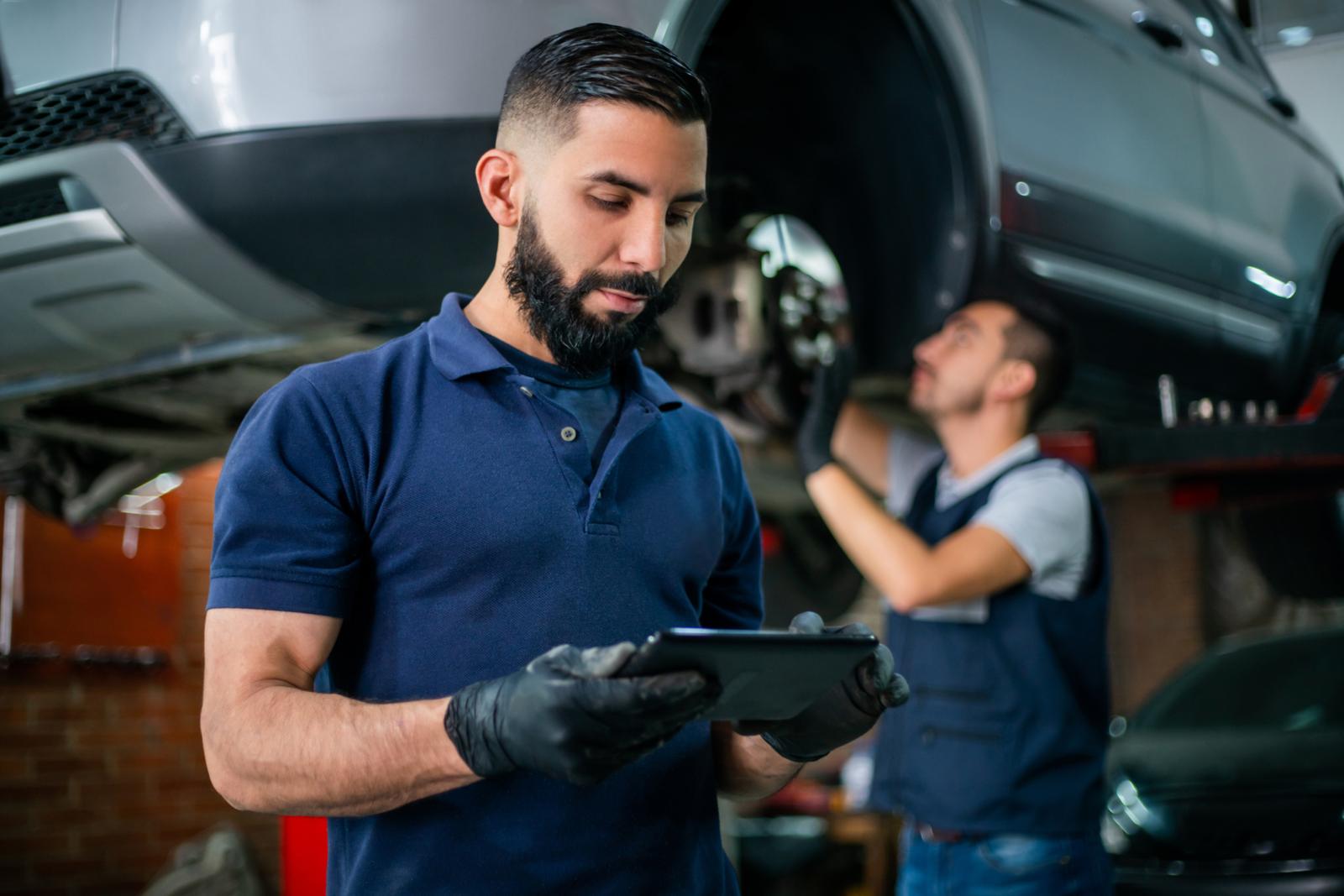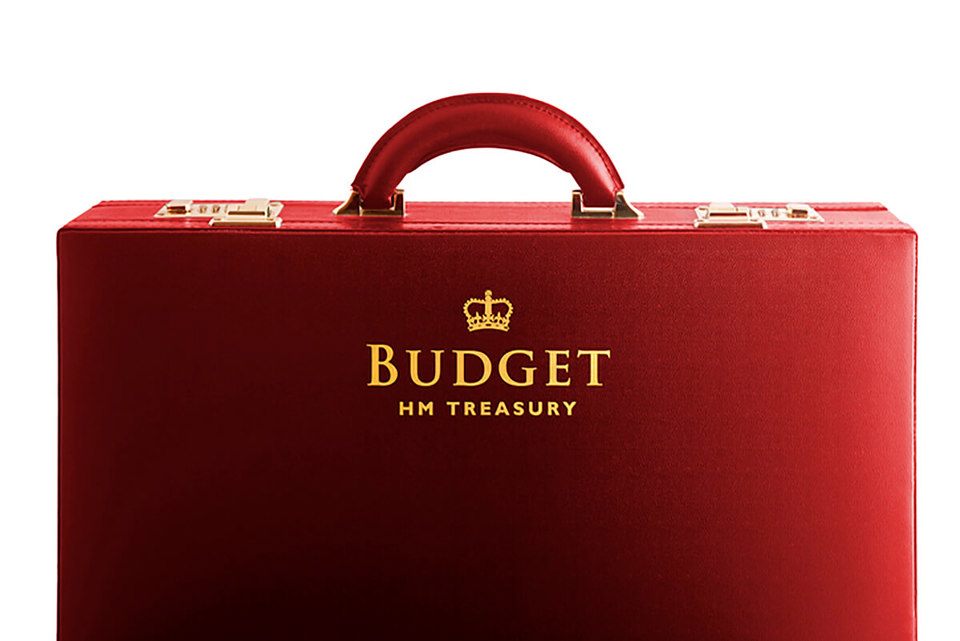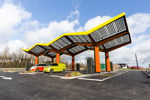Ahead of Wednesday's Budget, the Chancellor is being urged to introduce more measures to drive electric vehicle (EV) adoption and a freeze on fuel duty.
Jakob Pfaudler, the AA’s CEO, said: “The Chancellor has the chance to give confidence to drivers now, and for the future, in the final Budget before the General Election.
“Maintaining the freeze in fuel duty and equalising VAT for on-street EV charging to match domestic energy rates would be a great first step.
“Future proofing the automotive workforce is needed too, and the creation of a new Skills Funding Agency would help drivers in the years to come.
“Investing in school and college students in this exciting sector will help keep people on the road and instep with vehicle technology.”
On Vehicle Excise Duty (VED), the AA argues that there should be no increase above inflation and, while accepting the introduction of VED for EVs after 2025, the motoring organisation believes the rates applied to EVs should remain lower than for petrol and diesel vehicles to act as an incentive.
In an open letter to the Chancellor from FairCharge, signed by energy provider E.ON, ChargeUK, Jaguar Land Rover, Stellantis, Polestar and others, the group warns that EV drivers without home charging are facing an unfair burden.
Quentin Willson, FairCharge founder, said: “If the Government is serious about wider EV adoption, they must revisit this out-of-date VAT legislation - written in the early 1990s before the arrival of electric cars - and make it fit for purpose.
“The cost to The Treasury would be very small compared to the hundreds of billions spent supporting fuel duty, but the benefit to EV drivers without private parking and to urban air quality would be significant and remove this unnecessary barrier to EV adoption.”

While the UK remains Europe’s second largest new electric car market by volume with the actual number of EVs on UK roads rising, the rate of growth has slowed, and EV market share has stabilised.
Growth in the market is being sustained by fleets and businesses, which benefit from compelling tax incentives.
Private retail uptake, however, has been in decline since 2022 – with these buyers now accounting for fewer than one in four new EV registrations, compared with one in three previously.
The upcoming Budget, says the SMMT, is an opportunity to put Britain’s electric switch back on track, supporting drivers to go green by halving VAT on new EVs, changing upcoming VED rates so EVs are treated as essentials, not luxuries, and giving drivers more affordable public charging.
SMMT’s research shows that a VAT cut on EVs is the single most effective measure that would encourage drivers to go electric sooner.
Almost four in 10 drivers (37%) interested in going electric said a VAT cut would accelerate their plans – and even a quarter of drivers (26%) who weren’t interested in switching named it as the option most likely to change their mind.
Mike Hawes, chief executive of the SMMT, said: “The Budget is a crucial opportunity to re-energise the EV market, with fair tax for a fair transition.
“The Chancellor must end the perverse fiscal system that discourages drivers from moving away from fossil fuels and send a clear signal that the time to go electric is now.
“Success will see our economy powered up by zero emission mobility, delivering cleaner air, quieter roads and cheaper running costs, ending the uncertainty we are seeing amongst motorists.”
The Road Haulage Association (RHA) is calling on the Chancellor Jeremy Hunt to launch a package of support for HGV, coach and van operators in the upcoming Budget.
Ferdy Willans, public affairs manager at the RHA, said: “Despite the crucial nature of the sector it is struggling with a combination of rising costs and increased regulation.
“It has become clear that the industry needs Government support over the short term, and a long-term vision to allow it to continue to grow unhindered.”
Last year, the RHA found that operating costs, excluding fuel, for a typical 44-tonne HGV increased almost 10% whilst the freight volumes decreased by 10%. This is on top of a 20% increase in 2022.
Willans continued: “Increased costs in the logistics sector are passed on to the end consumer wherever possible – and where not possible, haulage firms risk business failure.
“Reduced costs on operators will help not just providers themselves but will also help reduce prices on basic goods and overall living costs for everyday consumers.”
Rising costs and complicated regulation has resulted in record numbers of hauliers going insolvent.
In the previous 12 months alone, more than 450 businesses in this sector collapsed, more than double the number a year prior. “This is not sustainable, and the industry needs support,” Willans said.

Tony Burgess, director of merchant network at FuelGenie, says that fuel duty is a levy for which a tax cut would be highly welcomed.
The tax is supposed to increase by 5p per litre (ppl) on March 23, with a further inflationary increase expected in August this year.
“Given that these would be the first fuel duty increases enacted since January 2011, it’s looking likely that the Chancellor of the Exchequer would include a further extension of the 5p fuel duty cut and cancellation of the inflation uprating in any package of tax cuts,” he explained.
“Yet despite the potential cut, the UK still has some of the highest duties on petrol and diesel in Europe.
“To improve the UK's competitive positioning and support motorists more effectively, the Government should consider not only extending the current duty relief, but also to align the UK’s fuel taxation more closely with European standards.
“This approach could contribute to a fairer market for all – from individual drivers to fleet managers and SME owners struggling to keep on top of escalating business costs.”
Meanwhile, the Institute of the Motor Industry (IMI) is urging the Chancellor to reinstate super-deduction to support the business investment needed in equipment and training for a sustainable EV aftermarket.
“Although the government made the decision last September to move the deadline back to 2035 for the ban on the sale of new petrol and diesel vehicles, the passing of the ZEV mandate into law this January means that many businesses that operate in the automotive aftermarket still need to be EV ready if they want to be part of the road to zero”, explained Steve Nash, CEO of the IMI.
“Yet they are faced with significant costs for equipment and training and little immediate incentive in the form of customer demand.
“If the Government is genuinely committed to reducing carbon emissions it not only needs to stimulate the market; it also needs to ensure the aftermarket sector is adequately equipped and trained to support EV drivers.
“We, therefore, hope that the Treasury is giving serious consideration to reinstating the super- deduction (130% first-year capital allowance for qualifying plant and machinery assets; and 50% first-year allowance for qualifying special rate assets) as well as reducing rates to help motor businesses invest in equipment and skills for new technologies.
“The Full Expensing 100% first-year capital allowance for qualifying plant and machinery assets introduced in March 2023 really doesn’t go far enough.”
The IMI also wants the Chancellor to ensure focus remains on rebuilding the UK economy with a skilled workforce.

It believes this can be achieved through increased funding for apprenticeships; support for SMEs to offer apprenticeships; FE Lecturer Funding; Adult Education Support and better financial support for apprentices, including free bus travel and a review of how apprentices who are also caregivers can benefit from Universal Credit.
“Clearly, the Chancellor will be focused on supporting every individual and business that has been hit by the cost-of-living crisis over the last 12-18 months,” continued Nash.
“We hope that this strategy doesn’t miss the significance of how important the automotive sector is to the UK’s economic and social infrastructure as a whole.”
Read more on the Budget from Osman Boyner, founder and CEO of Bedeo.





















Login to comment
Comments
No comments have been made yet.